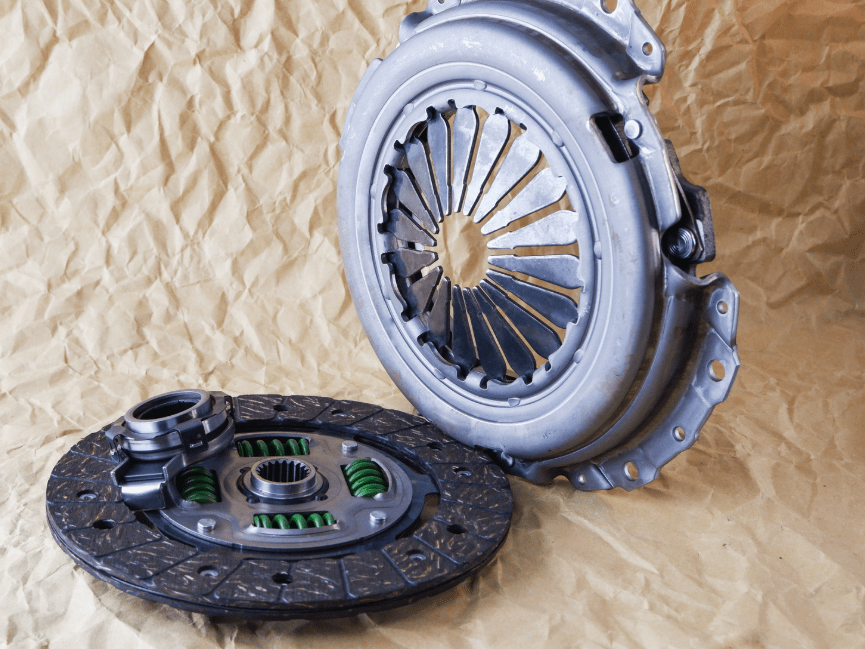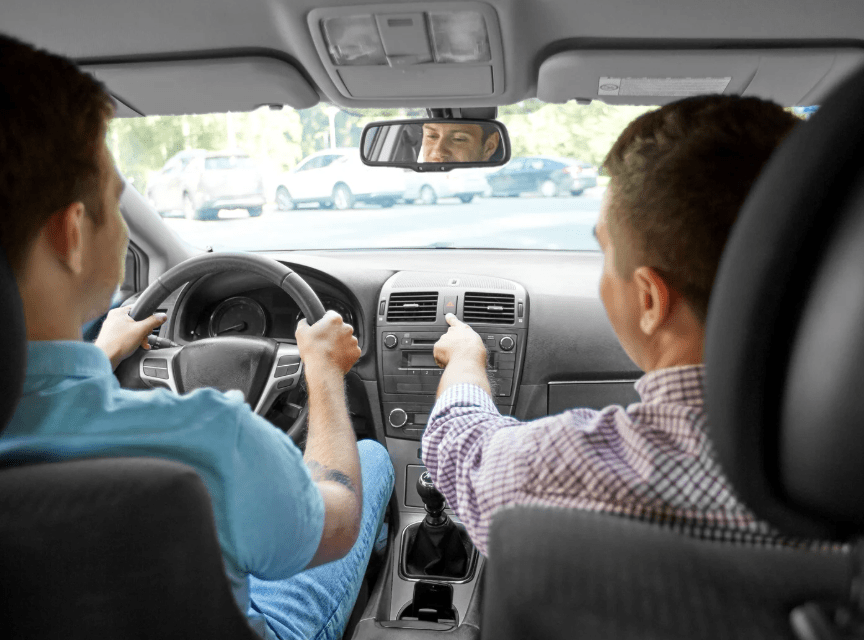Clutch Problems: Signs Your Clutch Is Going
Understanding clutch problems is essential for maintaining your car’s performance and safety.
Whether you are trying to diagnose a current issue or preparing for the future, it pays to be proactive about clutch health.
Signs Your Clutch Is Going
Any of the following could indicate that your clutch is going:
- The clutch feels spongy
- The clutch is sticking
- The clutch is slipping
- The clutch vibrates when pressed
- You hear squeaking when you press the pedal
- You can rev the engine, but acceleration is poor
- It is difficult to shift gears
If you notice any of these warning signs, you should have your clutch system inspected by a qualified mechanic soon.
When you browse and compare garages on BookMyGarage, you can see instant prices to find the best deal on a clutch replacement near you.
Clutch Problems
Learn more about some of the most common clutch problems you could encounter so that you can recognise the signs of clutch failure early on.
If you aren’t sure what is causing your clutch problem, trust a professional mechanic to find and fix the issue for you.
Spongy Clutch Pedal
If your clutch is soft or spongy, then it may need bleeding.
Bleeding the clutch hydraulic system will remove air bubbles and help the system work properly.
Whilst it is technically possible to bleed a clutch yourself, we would strongly advise that you trust a certified mechanic to do this for you.
Alternatively, your car’s brake fluid may need to be topped up – low brake fluid can cause the clutch slave cylinder to struggle.

Sticking Clutch
There are a few issues which can cause your car’s clutch pedal to stick:
- Clutch cable needs replacing
- Leaking hydraulic fluid
- Faulty clutch cylinder
- Broken clutch release bearing
- Lack of lubrication
- Contaminated lubricant
If you’re struggling to get the clutch pedal to return to its normal position after depressing it, your vehicle may be struggling with this issue.
You should not continue to drive if your clutch pedal is sticking to the floor or acting strangely, as you won’t have full control of the vehicle.
If this sounds like your problem, you should book an appointment at a local garage as soon as possible.
Make sure you get your recovery provider to tow your vehicle to the garage, as driving it will be very unsafe.
Low Clutch Fluid
Low clutch fluid can cause vibrations when you change gears and may result in increased resistance from the pedal.
If there is air in the hydraulic system due to low clutch fluid, this can make the pedal feel softer.
Low clutch fluid can be caused by a leak in the hydraulic system, likely caused by a worn-out seal.
To find out if your clutch fluid is low, locate the clutch master cylinder reservoir under the bonnet.
If it is low, you can top up with the recommended fluid type – refer to your owner’s manual if you want further clarification.
You should look for any signs of leaks around the master cylinder, slave cylinder and hydraulic lines.
Loose Clutch Pedal
If your clutch pedal feels loose, the clutch may need to be tightened up, or there could be an issue with the master cylinder.
If you can press your clutch pedal and it goes all the way to the floor with little resistance, then your clutch is loose and will require a clutch cable repair or replacement.
Grinding Noise When Pressing Clutch
A grinding noise when you press the clutch can be caused by any of the following:
- A worn clutch disc
- A worn release bearing
- A worn pilot bearing
- Low transmission fluid
- Internal damage
To find the exact cause, your clutch and transmission system needs to be inspected by a qualified mechanic.
Continuing to drive with this issue could cause significant damage, so you should address the problem sooner rather than later.
Clutch Judder
Clutch judder is what happens when your vehicle vibrates or jerks when the clutch is engaged or disengaged.
This can be caused by any of the following:
- A worn clutch disc
- A worn flywheel
- A worn pressure plate
- An incorrectly installed clutch
- Misalignment of the engine and transmission
You should have your vehicle looked at by an expert mechanic, and any worn or damaged components replaced.
Why Does My Clutch Pedal Squeak When Released?
A squeaky clutch pedal can suggest that there is friction or wear within the clutch pedal assembly.
It could be that the clutch pedal assembly or other related components are not properly lubricated.
You can consult a professional mechanic to find the exact cause of the squeaking.
What Happens When Your Clutch Goes Out While Driving?
When your clutch goes out, this can make driving unsafe as you will have less control over the vehicle.
If your clutch is going, you are likely to notice it is difficult to shift gears or your clutch feels soft.
Continuing to drive with a failing clutch can cause damage to the transmission and lead to costly repairs.
If your clutch goes out whilst driving, you will likely experience a loss of power – the vehicle might even stop moving entirely if the clutch completely fails.
What Should I Do If My Clutch Goes Out While Driving?
If you suspect that your clutch is failing as you drive, you should do the following:
- Shift the transmission to neutral
- Pull over when it is safe to do so
- Turn your hazard lights on
- Switch off the engine
- Call a breakdown provider
With regular vehicle maintenance and the early detection of clutch issues, you can prevent your clutch from failing whilst you drive.
If you require a clutch replacement, you can see instant prices on BookMyGarage to find a great deal near you.


